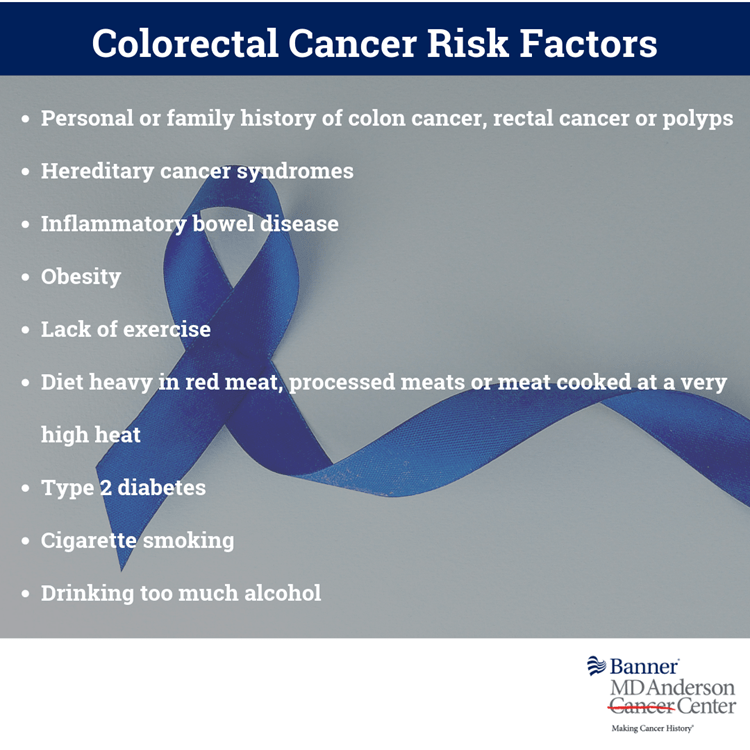
What do Audrey Hepburn, Ronald Reagan and Sharon Osbourne all have in common? All have fought a battle with colorectal cancer. To increase awareness of symptoms and preventive screenings, we spoke with Michael Choti, MD, division chief of surgery at Banner MD Anderson Cancer Center.
Unfortunately, colorectal cancer is still very common and is responsible for around 50,000 deaths per year in the United States. With screenings and better treatments, however, the mortality rates have come down from where they once were.
Is colorectal cancer the same as colon cancer? Colorectal cancer is more of an all-encompassing term that is used to discuss both colon and rectal cancer. The colon is the large intestine, which is made up of the last 5 feet of the bowel. The rectum makes up the last 8 inches of the large bowel and cancer of the rectum makes up about 30% of colorectal cancer.
Symptoms
Colon cancer symptoms will usually vary based on where in the bowel the cancer is located, but often include the following:
- Rectal bleeding
- Blood in the stool or toilet after a bowel movement
- Change in bowel habits such as diarrhea or constipation that does not go away
- A change in size or shape of stool
- Discomfort or urge to have a bowel movement when there is no need
- Abdominal pain or a cramping pain in your lower stomach
- Bloating or full feeling
- Change in appetite
- Weight loss without dieting
- Fatigue
Dr. Choti stresses that there are many non-cancer related reasons to have those symptoms, so while there is no need to panic over them, you definitely do not want to ignore them.
Screenings
Who should be screened for colorectal cancer and what are the screening options?
It is typically recommended that you receive your first screening at age 45. All patients, no matter their age, should consult with their doctor regarding screening tests if they are experiencing symptoms.
Dr. Choti also explains that if someone has risk factors for colorectal cancer, then earlier screenings are often recommended. The below graphic demonstrates some of the common risk factors:
The most common screening to detect colorectal cancer is a colonoscopy. While many people dread having a colonoscopy, it is one of the most tried and true ways to screen for colorectal cancer.
While Dr. Choti admits that the most cumbersome part of the process is the prep, which involves cleansing the system by drinking a special solution and only drinking clear liquids, he explains, "Colonoscopies are very safe, and they go very smoothly. The patient will be sedated, so it is essentially a 20-minute nap".
While there are a few other methods that can be used to screen for colorectal cancer. Dr. Choti explains that colonoscopies are by far the best and most accurate screening tool. Something that is unique about a colonoscopy is that, during the procedure, colon polyps can be detected and actually removed on the spot. This means that polyps that have the potential to become cancerous are removed before they turn into cancer.
While colonoscopies are the preferred screening method, other tests include:
- A yearly stool-based test
- Virtual colonoscopy involving the full prep of a colonoscopy followed by a CT scan
What now?
Early detection is very important in the fight against cancer. Therefore, taking a mental note of the colorectal cancer warning signs can be crucial in talking to your doctor as early as possible. Also, be sure you are adhering to your doctor’s recommendations on when to receive your routine screenings - even if you are not experiencing any symptoms. Together, we work for a future without cancer.
Related articles:
- Liquid Biopsy May Change the Way We Treat Cancer
- How to Manage Your Own Risk When There's Cancer in Your Family
Updated: Screening guidelines in this article were updated on November 3, 2021.



